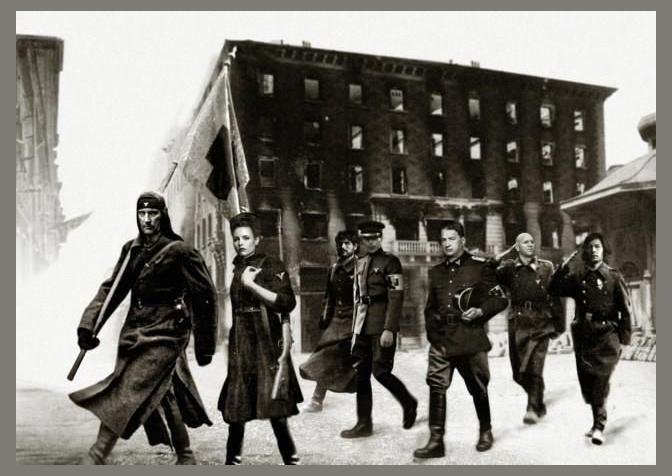 Laibach
Laibach
Laibach: The Enigmatic Industrial Pioneers of Slovenian Art-Rock
Laibach, an avant-garde industrial band from Trbovlje, Slovenia, has captivated audiences with its provocative music and enigmatic performances since its inception in 1980.
Challenges and Controversies
Laibach's music has consistently provoked controversy. Their early work drew inspiration from totalitarian imagery and communist ideology, leading to accusations of fascism and censorship. In 1983, their concert in their hometown was banned, and their album "WAT" was seized by Yugoslav authorities.
Despite these challenges, Laibach remained steadfast in their artistic vision. They adopted a "retro-avant-garde" aesthetic, blending elements of industrial music, classical symphonies, and totalitarian symbolism. This unique approach challenged conventional notions of art and society.
Discography
Laibach's prolific discography spans over four decades and includes over 20 studio albums. Notable releases include:
* "Opus Dei" (1987)
* "Kapital" (1992)
* "NATO" (1994)
* "WAT" (1985)
* "Volk" (2006)
Members
Laibach's core members have remained relatively consistent throughout the years:
* Milan Fras: Lead vocalist, lyricist, and conceptualist
* Ivan Janković: Keyboardist, composer, and producer
* Erik Buda: Guitarist, lyricist, and visual artist
* Sašo Vollmaier: Bassist and sound engineer
Legacy and Impact
Laibach's influence extends beyond music. Their art and performances have explored themes of totalitarianism, authority, and the nature of identity. They have collaborated with artists from various fields, including theater, film, and performance art.
The band's enigmatic and provocative style has garnered critical acclaim and a cult following. They have been praised for their originality, artistic integrity, and unwavering commitment to challenging the status quo. Laibach remains a potent force in the contemporary art world, continuing to provoke, inspire, and challenge audiences with their unique brand of industrial art-rock.
Laibach, an avant-garde industrial band from Trbovlje, Slovenia, has captivated audiences with its provocative music and enigmatic performances since its inception in 1980.
Challenges and Controversies
Laibach's music has consistently provoked controversy. Their early work drew inspiration from totalitarian imagery and communist ideology, leading to accusations of fascism and censorship. In 1983, their concert in their hometown was banned, and their album "WAT" was seized by Yugoslav authorities.
Despite these challenges, Laibach remained steadfast in their artistic vision. They adopted a "retro-avant-garde" aesthetic, blending elements of industrial music, classical symphonies, and totalitarian symbolism. This unique approach challenged conventional notions of art and society.
Discography
Laibach's prolific discography spans over four decades and includes over 20 studio albums. Notable releases include:
* "Opus Dei" (1987)
* "Kapital" (1992)
* "NATO" (1994)
* "WAT" (1985)
* "Volk" (2006)
Members
Laibach's core members have remained relatively consistent throughout the years:
* Milan Fras: Lead vocalist, lyricist, and conceptualist
* Ivan Janković: Keyboardist, composer, and producer
* Erik Buda: Guitarist, lyricist, and visual artist
* Sašo Vollmaier: Bassist and sound engineer
Legacy and Impact
Laibach's influence extends beyond music. Their art and performances have explored themes of totalitarianism, authority, and the nature of identity. They have collaborated with artists from various fields, including theater, film, and performance art.
The band's enigmatic and provocative style has garnered critical acclaim and a cult following. They have been praised for their originality, artistic integrity, and unwavering commitment to challenging the status quo. Laibach remains a potent force in the contemporary art world, continuing to provoke, inspire, and challenge audiences with their unique brand of industrial art-rock.